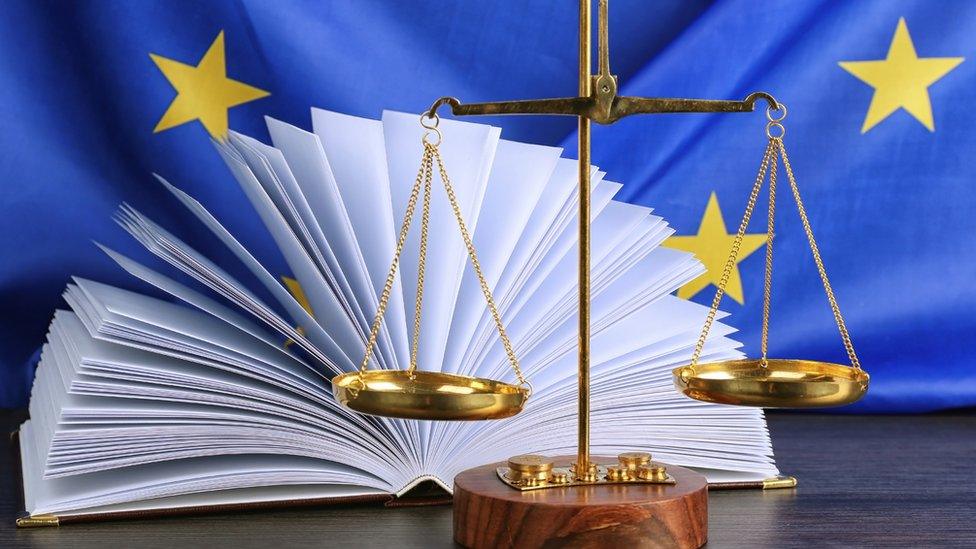How easy is it for Americans like Meghan to become British?
- Published
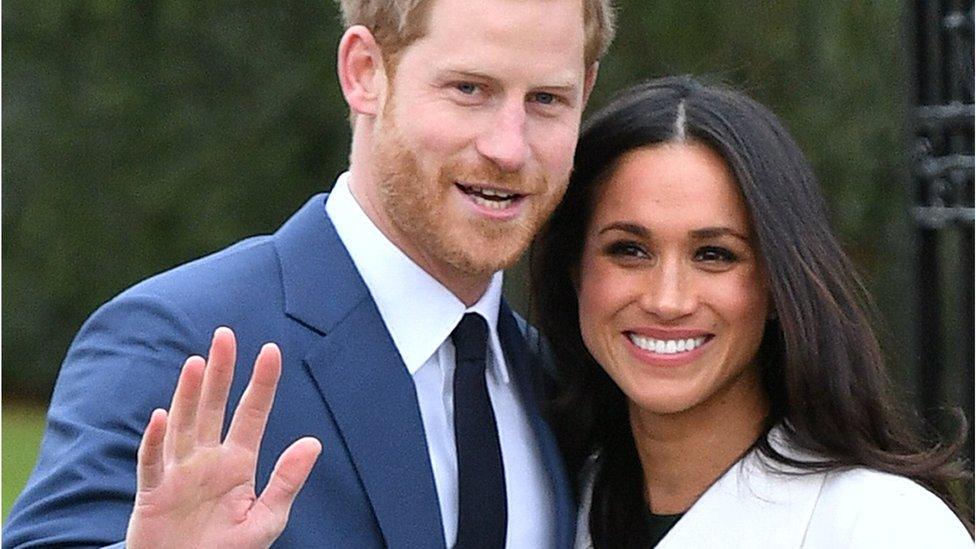
Meghan Markle is to apply for British citizenship once she marries Prince Harry
As she marries Prince Harry, Meghan Markle will be working towards becoming a British citizen in the coming years.
It can be a lengthy and costly process - hopefuls first need to secure permanent residency after living in the UK for five years before they can even apply.
Visas, applications and tests costs can add up to thousands of pounds.
Kensington Palace says Ms Markle will be treated like any other applicant. So how difficult is it for the average American?
Freddie O'Farrell and his American partner Bethany Birdsall are right at the start of the process and applied for a fiancée visa just as news of Prince Harry and Ms Markle's engagement broke. It is complicated, they say, and already proving stressful.
Miss Birdsall is at home in Minnesota while the application is processed.
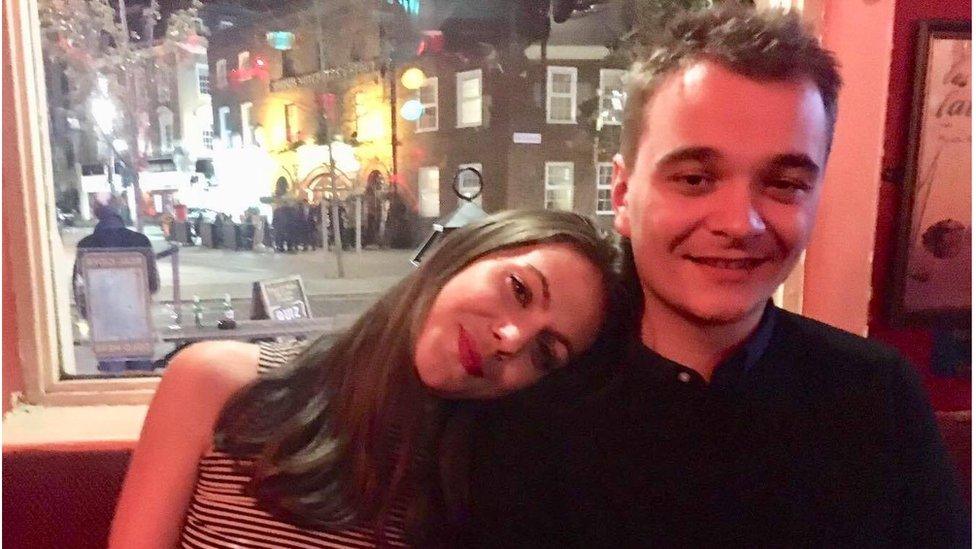
Freddie O'Farrell and his American partner Bethany Birdsall have just begun the process of securing a fiancée visa
Mr O'Farrell, 24, said she is "killing time" until she comes back to the UK, where she will not be able to work while holding the fiancée visa, waiting instead until she has a marriage visa.
It has put extra pressure on their finances - around £3,000 needed for visas and legal fees.
"Because we have no dependants, we are quite a simple case," he said. "But even for us we are looking at spending a lot of money and being apart for three or four months.
"It's definitely a strain on any relationship, but it's much harder for her because she can't work when she gets here, so it's a lot of waiting around."
Ms Birdsall has previously worked with children of undocumented migrants in Chicago and, when she is legally allowed to work, wants to do a similar job in the UK.
Mr O'Farrell added: "Frankly, the system is very difficult to navigate, prohibitively expensive - though I imagine that is probably on purpose - and very slow."
A Home Office spokesman said the fees charged, to apply for citizenship for example, external, are "key" to the government's aim to make the system fully-funded by those who use it and "reduce the burden on the UK taxpayer".
'Confusing and frustrating' system
American writer Jessica Pan, from Texas, recognises Ms Birdsall's fledgling struggles as part of a "confusing and frustrating" system that she says is constantly changing.
She moved to London to be with her now-husband following a period working in China and dating long-distance.
She originally planned to apply as a skilled migrant.
"I had a Master's degree and made enough money in China to qualify for it. I planned my life around this," she remembers.
But rule changes threw this plan into chaos; suddenly her Chinese salary no longer met the new requirements.
As a result, she applied for a fiancée visa and moved to London in 2012.
"People plan their entire lives around these rules that change at the drop of a hat," she said.
This instability drove Mrs Pan to apply for citizenship as she "wanted to see an end to that constant feeling of the unknown".
"I couldn't bear thinking I might suddenly have to pay an exorbitant amount of money to stay in the UK and live my life here with my husband or be kicked out," she said.
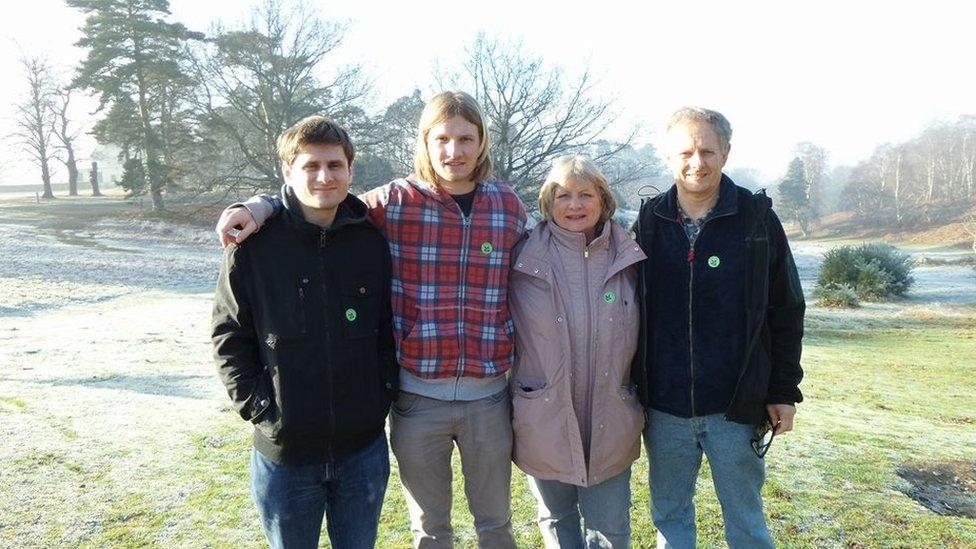
Mrs Marshall with her two sons Kenny and Jeff and British husband, Ian
As part of proving their eligibility, Americans must take the Life in the UK test - based on an accompanying textbook - but are exempt from the English language examination.
The 45 minute test costs £50 and contains 24 questions, with a 75% pass threshold. Those who fail must wait seven days to resit.
Karen Marshall, 61, who became a British citizen in 2013 after living in the UK and being married to a Briton since 1986, described the intricacies of the test as "a challenge from start to finish".
She failed her first attempt, not over the test itself, but rather a mistake in the paperwork.
"I accidently ticked biometric residential permit on the online form, not realising the difference between my normal residential permit," she said.
"Despite taking my passport and permit to the assessment centre, I was barred from taking the test as it did not match the online form.
"This really annoyed me as I had to pay and re-sit a week later."
Mrs Marshall, a retired piano teacher, also found the questions "somewhat ambiguous".
"One asked 'which group is better off now than in the 1920s?'. I think they wanted the answer to be women, but everyone now is better off now than in the 1920s," she added.
Applicants can request for their test to be remarked and will be given feedback on the number of questions answered incorrectly across each area, although they do not find out exactly which questions they got wrong.
Beyond the test, the practical challenge of collating all the paperwork is another difficulty for applicants, who must provide detailed travel information in and out of the UK over the past five years.
'People take me more seriously'
But despite the struggles, Americans see many advantages gained.
For Mrs Marshall the "fantastic" NHS proved a key factor.
"I have lived with both systems and, believe me, the people in the UK have it made as far as health care goes," she said.
There are also political and travel motivations, although the Brexit vote will remove a key current benefit - freedom of movement around the EU.
Mrs Pan feels she is "taken more seriously," through her new-found status, especially after gaining the right to vote.
"I became eligible right before the EU Referendum. It was important to me that I got to have a say and vote Remain."
But despite the result, Mrs Pan says the greatest strength of citizenship is "knowing you have a say".
- Published1 December 2017
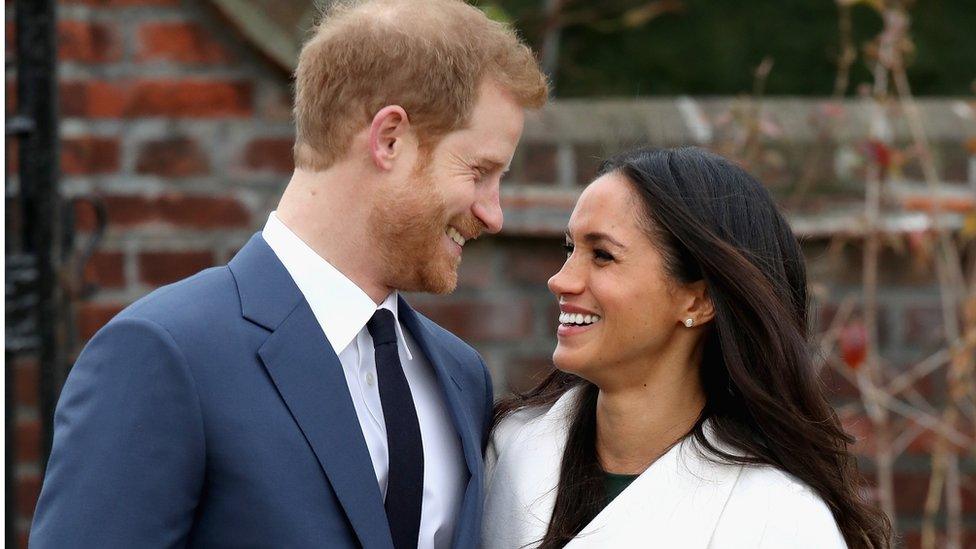
- Published29 September 2017

- Published14 November 2017
